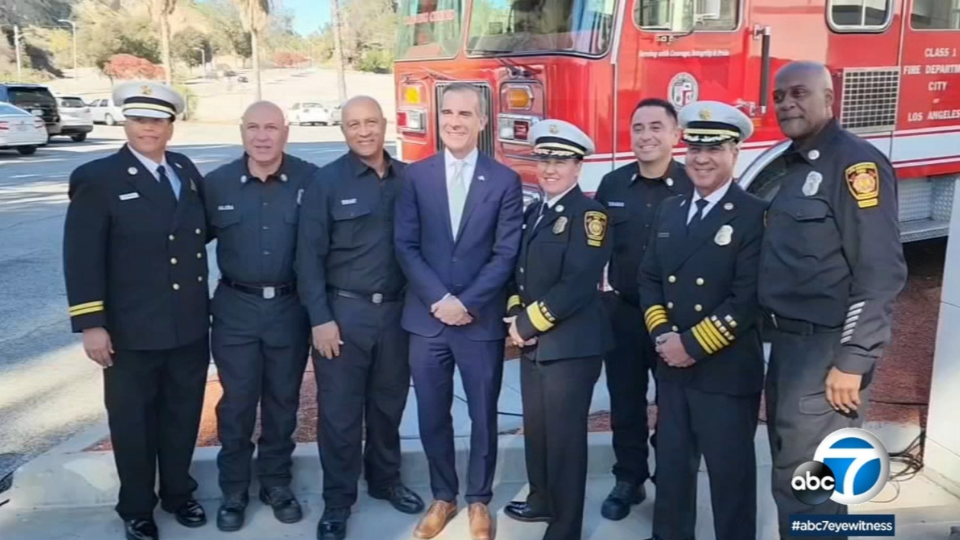
Click on the play button to listen to the audio version.
While the fires raged in Los Angeles, some of the most powerful people in the country weren’t focused on helping the families who suffered unimaginable losses. Instead, they used their enormous platforms to blame the tragedy on their favorite target, DEI.
In less than four years, DEI went from being a widely accepted bipartisan solution for America’s precarious wealth and income gaps to the root cause of every failure known to man. A staggering feat accomplished with military precision by none other than the world’s richest man and the social media platform he purchased for the trivial price of 44 billion dollars. I’ll get back to that in a minute.
After half the world witnessed the killing of George Floyd, a Black man, murdered by a White law enforcement officer, governments, along with the majority of Fortune 500 companies, made a wave of pledges to improve economic conditions for Blacks, Latinos, and other historically disadvantaged groups. Those pledges usually included some commitment to enhance workforce diversity. Specifically, they committed to hiring more minorities in management, executive, and board positions.
While the idea sounded reasonable on the surface, it never felt authentic. Don’t get me wrong, some companies genuinely value diversity – and did so even before George Floyd. For them, DEI was business as usual, but for others, the effort seemed forced, as if someone was holding a gun to their head. I always felt that DEI was a shell game for some of those companies, especially the ones from Silicon Valley who hired chief diversity officers who reported to the CEO for optics but who, for all intents and purposes, were powerless, lacking a budget or any of the usual authority that comes with a c-suite title. A DEI strategy without any real teeth gave them a box to check without having to do anything significant.
While there was always some resistance to DEI, it was mainly on the fringes, at least until Elon Musk and fellow billionaire Bill Ackman decided to make it their mission in life to destroy it. Musk and Ackman’s arguments always manipulated the truth, but their all-out assault on DEI gave disingenuous companies the out they needed – and man, did they take it.
I must say, it’s been amusing watching some of these companies go from taking a knee in black solidarity to suddenly and in what seemed like orchestrated unison, realizing that OMG, DEI is nothing more than reverse discrimination and, of course, canceling their DEI programs and self-righteously proclaiming that discrimination in all forms is downright wrong—such virtue.
I say amusing because nothing really changes in the grand scheme of things. Those of us on the inside knew the idea of DEI, for many companies, was primarily a facade. Companies that know diversity at all levels is a powerful asset will continue to do what works for them, and the ones that don’t believe it will never change anything.
America is not a meritocracy. As much as we want it to be, it’s not – at least not yet. Eighty-five percent of all jobs are never posted, and 70% are filled from a referral. How do you think those jobs get filled? Who you know has always mattered more than actual qualifications. But there was never a complaint from Musk or Ackman for any of that. For what it’s worth, DEI was never about lowering the bar to give minorities jobs they aren’t qualified to have. That’s just propaganda. DEI, at least in concept, was about reducing barriers caused by nepotism, legacies, and other forms of implicit racism so that the best candidates, regardless of race or ethnicity, can fairly rise to the top. Full Stop!
I don’t know anything about the hiring practices of the city of Los Angeles. The scale of the damage of the fires suggests that there is a lot of blame to go around, but there is no chance that an effort to hire Black, Latino, or female firefighters was any part of the problem.
I’ve said it before, and I’ll say it again: DEI was never going to save Latinos. Less than two years after making billion-dollar pledges, and before Musk made killing DEI an obsession, some of the biggest companies in America were already back peddling on their Black and Hispanic commitments because they weren’t getting a fast enough ROI, something that was never stated as a condition when the pledges were made. That’s right, what began as a commitment to leveling the economic playing field quickly became an agnostic “investment” that demanded an immediate payoff. What is most disconcerting is that U.S. companies were investing in emerging markets like India for decades before seeing any return, and nobody complained about that. Without that capital, there probably wouldn’t be a growing Indian economy or a Sundar Pichai or Satya Nadella, for that matter. Still, capital gets tight and heavily scrutinized when it comes to investments that may not only be profitable but could also help close the wealth gap in America, which is arguably the greatest threat to our economy.
As always, Latinos will have to work twice as hard for everything. That’s okay; we’re pretty good at working hard. What we’re not good at is collaborating with each other. We need to get better at that because the war on diversity is only just beginning. Working together is a trillion-dollar opportunity for us. We have the wind at our back this time. Latinos are driving economic growth across sectors, and if we can keep the powers that be from dividing us, and that’s a big if, we won’t need DEI because the opportunities for ourselves and our children will be vast and unprecedented.
